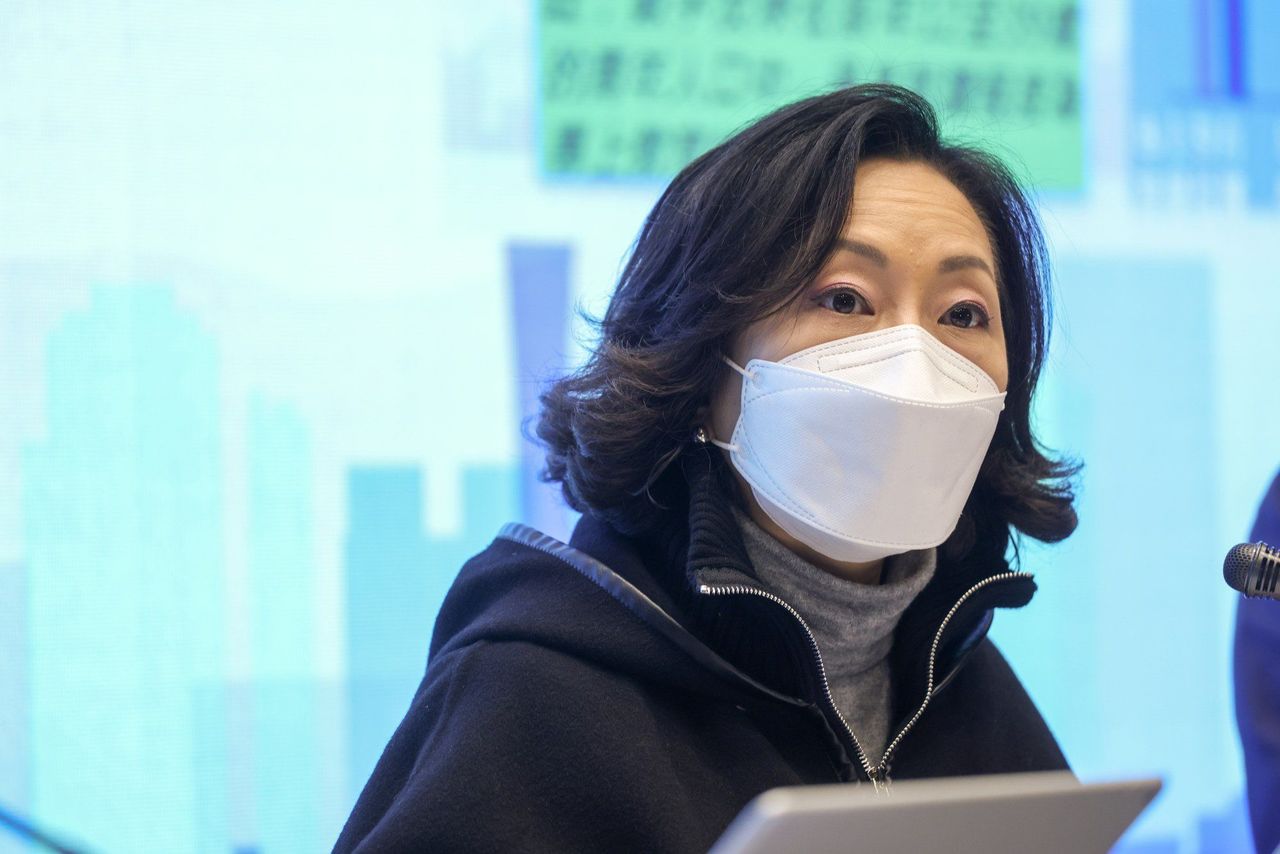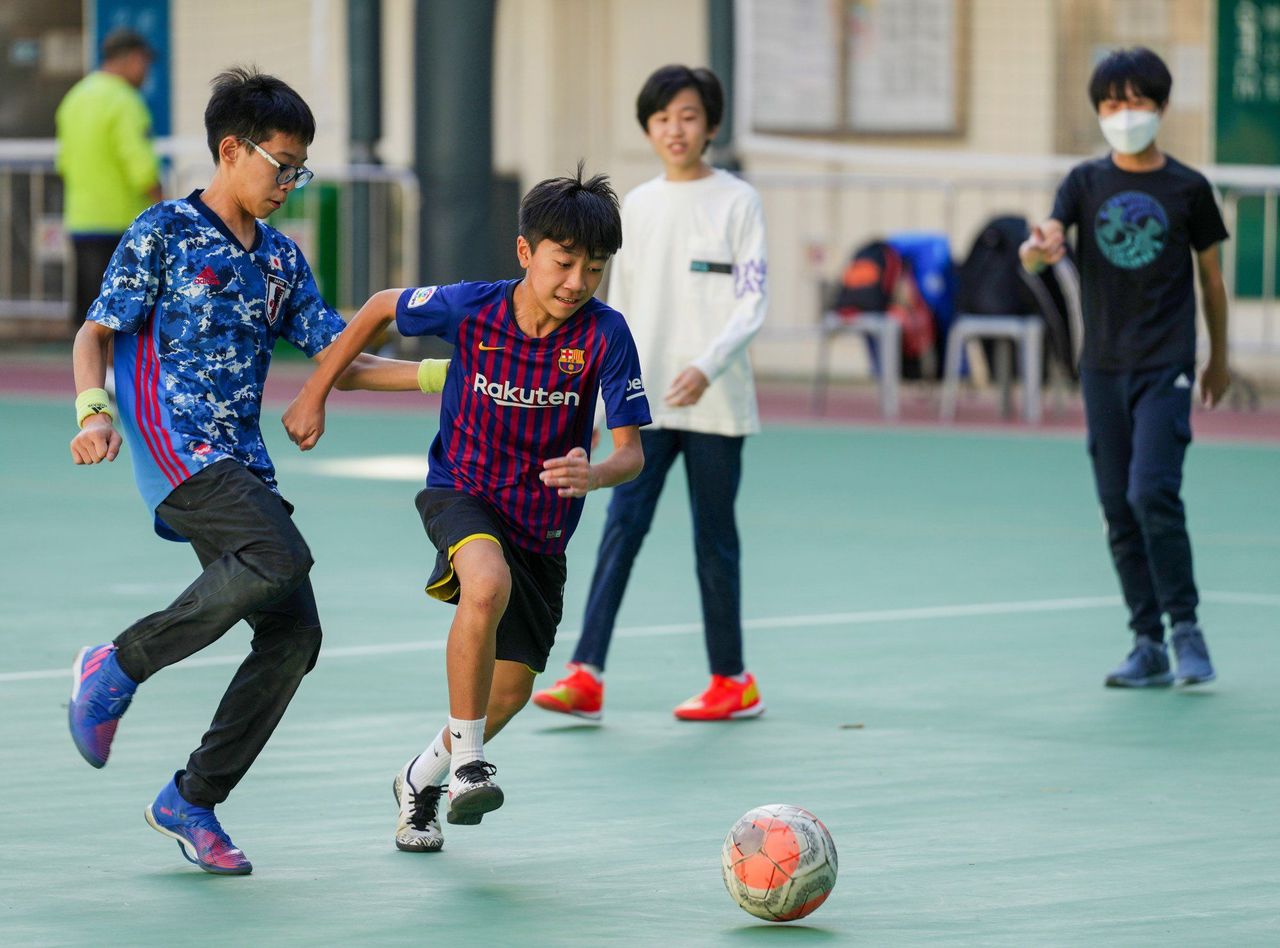Secretary for Home and Youth Affairs Alice Mak says plan shows government is taking more centralised approach to creating brighter future for city’s youth.
Hong Kong has unveiled the first, comprehensive blueprint for youth development, laying out 160 initiatives with the overall focus on cultivating a better sense of belonging to the country.
While many of the measures were either announced in the chief executive’s policy address in October or already in place, Secretary for Home and Youth Affairs Alice Mak Mei-kuen on Tuesday said her plan showed the government was taking a new centralised approach to creating a better future for the city’s young people.
“In terms of our vision, we hope to cultivate our youth into a generation that loves Hong Kong and their country, courts international perspectives and possesses a positive mindset,” she said.
“We will ramp up the sense of belonging to the country and Hong Kong among the youth, [while making sure] they have a thorough understanding of the [Chinese] constitution and Basic Law.”
 Secretary for Home and Youth Affairs Alice Mak.
Secretary for Home and Youth Affairs Alice Mak. Mak pledged to promote internship opportunities and exchange programmes outside the city, while better preparing young residents for a future where Hong Kong was more closely integrated with the country’s development goals, in sectors ranging from finance and technology to culture and aviation.
Authorities also vowed to continue to strengthen exchanges with mainland Chinese authorities on policies and opportunities for the youth.
On housing, the report said it would relaunch the starter homes project, introduced by the previous administration, to provide affordable flats for middle-class first-time buyers next year, on top of continuing support for a youth hostel scheme. Mak noted more than 85 per cent of previous buyers of starter homes were people aged 40 and below.
The blueprint also highlighted the importance of promoting vocational and professional education as a parallel route to conventional academic learning. The government also said it would improve learning conditions for students in hospital and those with autism.
While the recently revamped Home and Youth Affairs Bureau would remain in charge of policies for younger residents, the government would also create the new role of youth commissioner, to be taken up by the bureau’s deputy secretary. The city’s No 2 official, meanwhile, would chair the existing Youth Development Commission, in the hopes of bolstering co-ordination.
“Youth work has to be long-term, sustainable and not fragmented,” Mak said.
The government would establish a new “youth network” to offer ways for young people to contribute to the community, and launch an app that provided them with access to information about opportunities.
Newly appointed Commissioner for Youth Wallace Lau Ka-ki said it was difficult to determine the overall cost of enacting the measures covered in the blueprint, since they involved different government bureaus.
Asked whether she had specific plans to reconnect with the youth who took part in the anti-government protests three years ago, Mak said the government was hoping to show younger residents the range of its efforts to improve their future through such tools as the network and the app.
 The government is set to establish new “youth network” to offer ways for young people to contribute to the community.
The government is set to establish new “youth network” to offer ways for young people to contribute to the community.
“I believe that once they understand it, of course, they can continue their criticism, but at least they will have the message,” she said.
Mak stressed that while the blueprint showed the government was taking a holistic view of youth development, the strategy was not designed to only address one particular issue. Specific policies would be created for different sets of young people, she said.
While authorities had set up indicators to measure progress in tackling the challenges ahead, quality of work remained the most important consideration, she insisted.
“We should no longer use headcount as an indicator of our youth work, but the quality,” she said. “We hope that overall a social atmosphere can be established to let everyone see that our communication and contact with young people is profound,” she added.
She said her bureau would regularly report to the Legislative Council and pledged the blueprint would adapt over time to “feel the pulse of the youth”.
Paul Wong Wai-ching, an associate professor at the University of Hong Kong’s department of social work and social administration, welcomed the blueprint but said he wanted to see more innovative ideas brought to the table.
“It is a good thing to have a policy and have interdepartmental cooperation. Giving the youth more opportunities to climb the social ladder is also good,” he said.
“However, the government will eventually have to consider how to convince young people they are part of Hong Kong’s future, as well as to stay and contribute. This is the hardest and most urgent matter we have to do as a whole.”
However, a Democratic Party representative described the policies as “placing old wine in a new bottle”, with the bureau failing to address the “serious rifts” between the government and the youth resulting from the social unrest in 2019.
Expressing its support for the policies, the Democratic Alliance for the Betterment and Progress of Hong Kong said the initiatives would help “lay a foundation” for developing the next generation.















